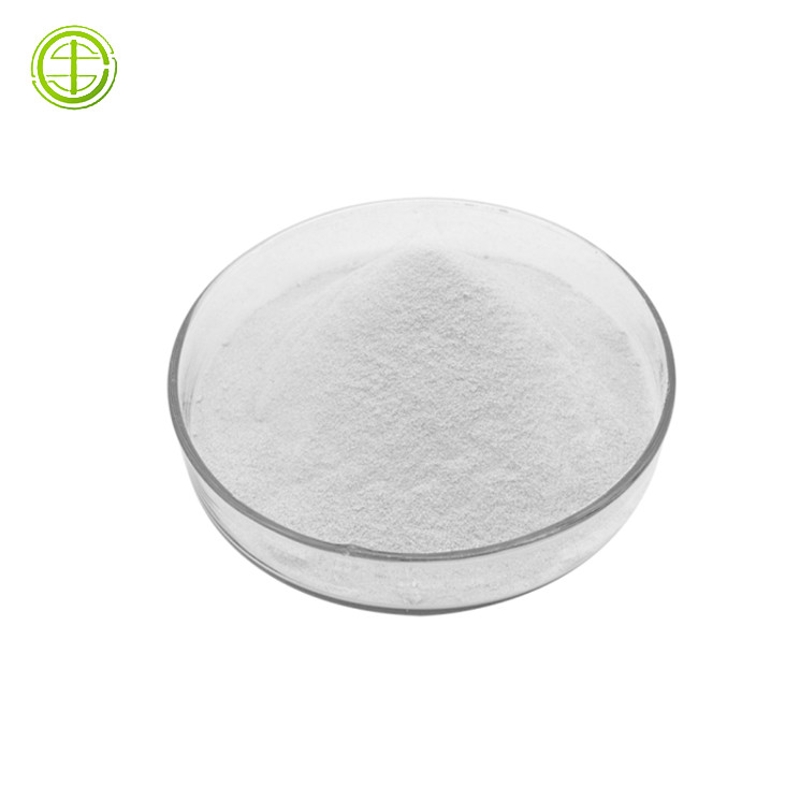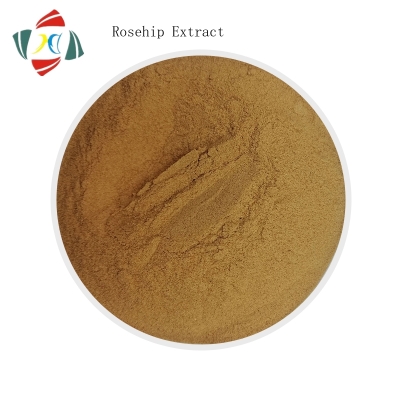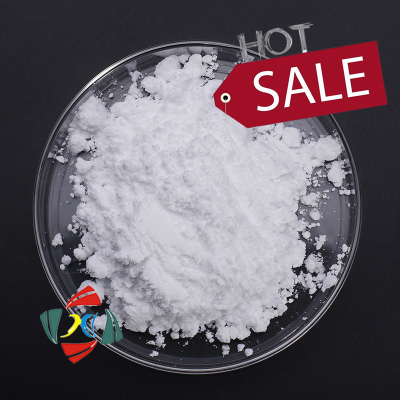-
Categories
-
Pharmaceutical Intermediates
-
Active Pharmaceutical Ingredients
-
Food Additives
- Industrial Coatings
- Agrochemicals
- Dyes and Pigments
- Surfactant
- Flavors and Fragrances
- Chemical Reagents
- Catalyst and Auxiliary
- Natural Products
- Inorganic Chemistry
-
Organic Chemistry
-
Biochemical Engineering
- Analytical Chemistry
- Cosmetic Ingredient
-
Pharmaceutical Intermediates
Promotion
ECHEMI Mall
Wholesale
Weekly Price
Exhibition
News
-
Trade Service
*It is only for medical professionals to read for reference.
Don’t know it, you can understand it at a glance! The content of the inventory on January 23, 2021 was jointly carried out by experts from the Department of Rheumatology and Immunology of Peking University First Hospital.
Professor Zhang Zhuoli served as the chair of the conference.
Professor Hao Yanjie, Professor Deng Xuerong, and Dr.
Song Zhibo conducted a wonderful sharing of the combination of scientific research and clinical practice.
Wang Professor Yu, Professor Li Guangtao, and Professor Zhao Juan made in-depth comments and discussions on the sharing of the three speakers.
Today, what I will bring to the rheumatology colleagues in front of the screen is the same wonderful discussion session after the speech.
Looking at the diagnosis and treatment of diseases from difficult cases, Professor Zhao Juan first combined with the cases of lupus podocyte disease introduced by Dr.
Song Zhibo, and summarized the characteristics of lupus podocyte disease and its relationship with lupus nephritis and the key points of identification.
Professor Zhao Juan believes that although lupus podocyte disease is relatively rare in lupus patients, it is a problem that cannot be ignored in the diagnosis and treatment of lupus nephritis.
Professor Juan Zhao answered the most critical question-how to realize the existence of podocyte disease during clinical diagnosis and treatment? Professor Zhao Juan pointed out that pathological findings are the primary key point for identifying lupus podocyte disease.
When the patient has a large amount of proteinuria and the pathological characteristics under the light microscope do not match the clinical manifestations of the patient, the electron microscope should be rechecked to confirm whether the patient has signs of podocyte fusion.
If so, the diagnosis of lupus podocyte disease can be performed.
Professor Zhang Zhuoli, chairman of the conference, said that the treatment of lupus podocyte disease is difficult and the recurrence rate is high.
The maintenance phase treatment requires special attention.
Based on the views put forward by Professor Zhang Zhuoli, Dr.
Song Zhibo combined the case (at the age of 35, she has alopecia, edema, and anuria, the cause of the disease actually originated from this small cell!) summarized the three precautions for the maintenance treatment of lupus podocyte disease: Early clinical manifestations of the disease: Although the current guidelines recommend hormone monotherapy for the initial treatment of patients with podocyte disease, the risk of recurrence may be higher for patients with severe initial disease and outstanding performance.
Therefore, initial combined immunosuppressive therapy can be considered as appropriate. Pay attention to the pathological manifestations of patients: FS/GS-positive patients under light microscope have a higher risk of recurrence and are more inclined to choose combination therapy rather than single-agent therapy.
Combined with the clinical manifestations of the patient: clinically it is impossible to predict the specific manifestations of the patient's relapse, but if the patient not only has nephrotic syndrome but also has acute kidney injury (AKI) manifestations in the early stage of the disease, the situation after the relapse will be more unoptimistic and should be the first onset More active treatment at the time.
What is the key to reducing psoriatic arthritis? Professor Li Guangtao and his team are committed to studying the comorbidities of psoriatic arthritis.
He believes that there is a complex and close connection between psoriatic arthritis and metabolic syndrome.
Professor Li Guangtao pointed out that overweight, obesity and physical trauma can significantly increase the risk of psoriatic arthritis.
Generally speaking, every increase in body mass index (BMI) by 1kg/m2 increases the risk of arthritis in patients with psoriasis by 6% Overweight and obesity increase the risk of arthritis in patients with psoriasis by 50% and 75%, respectively; therefore, reasonable diet control and weight management are important methods to prevent and delay arthritis in patients with psoriasis.
Psoriatic arthritis is different from rheumatoid arthritis.
Currently, there is no recognized biomarker for diagnosis and treatment.
Based on this status, the chairperson of the conference, Professor Zhang Zhuoli, invited the speaker of "Psoriatic Arthritis Update 2020" Professor Deng Xuerong gave a supplementary explanation.
Professor Deng Xuerong said that scholars from all over the world are studying biomarkers for psoriatic arthritis.
The latest developments show that the plasma gelatin level of patients with psoriatic arthritis is lower, and the best cut-off value is 172.
5 mg/ L, the sensitivity and specificity were 92.
1% and 95%, respectively.
At the same time, plasma gelatin is also negatively correlated with inflammation markers and disease activity of psoriatic arthritis.
With the deepening of research, plasma gelatin may become an effective predictor of psoriatic arthritis.
Lupus: Is Zero Hormone Treatment Possible? What to do with refractory lupus? Hormones are most familiar to rheumatologists and the most important drugs in the treatment of lupus.
In recent years, the side effects of hormones have received widespread attention from both doctors and patients.
Is it possible to get rid of hormones in future lupus treatment? Professor Wang Yu analyzed this issue. Professor Wang Yu believes that lupus is a chronic disease that requires long-term management.
As the disease activity decreases, the reduction or even the reduction of glucocorticoids can be achieved in the clinic.
However, due to the insufficient evidence of randomized controlled trials (RCT) in this area, the academic community has not formed a consensus on the strategy of hormone reduction.
With the continuous enrichment of clinical RCT data, the evidence in this area will gradually be supplemented.
At the end of the annual inventory of this issue, in response to the question "What kind of patients consider refractory lupus and what is the clinical treatment?" raised by the chairperson of the conference, Professor Zhang Zhuoli, the topic of "Progress in Diagnosis and Treatment of Systemic Lupus Erythematosus (SLE) in 2020" The speaker, Professor Hao Yanjie, made a supplementary sharing.
Professor Hao Yanjie believes that persistently positive urine protein, continuous decrease in platelets, and continuous maintenance of abnormal levels of serological indicators are the more common clinical manifestations of refractory lupus erythematosus.
For this part of patients, the reason for refractory should be considered first-what is it? The patient compliance problem is still a treatment plan problem.
The former requires doctor-patient communication and patient education for assistance, while the latter can be combined with biologics for treatment or multi-target therapy with traditional immunosuppressive agents.
Conclusion In the discussion session of equal emphasis on theory and practice, experts from the Department of Rheumatology and Immunology of Peking University First Hospital conducted a more in-depth discussion and summary on the diagnosis and treatment of systemic lupus erythematosus and psoriatic arthritis in 2020, which will be the conference on January 23 Draw a perfect ending.
"Propagate the strongest rheumatism and create a new academic fashion.
" In 2021, the medical doctor station will continue to work with experts to bring more academic benefits to the rheumatology colleagues in front of the screen.
Please continue to pay attention!
Don’t know it, you can understand it at a glance! The content of the inventory on January 23, 2021 was jointly carried out by experts from the Department of Rheumatology and Immunology of Peking University First Hospital.
Professor Zhang Zhuoli served as the chair of the conference.
Professor Hao Yanjie, Professor Deng Xuerong, and Dr.
Song Zhibo conducted a wonderful sharing of the combination of scientific research and clinical practice.
Wang Professor Yu, Professor Li Guangtao, and Professor Zhao Juan made in-depth comments and discussions on the sharing of the three speakers.
Today, what I will bring to the rheumatology colleagues in front of the screen is the same wonderful discussion session after the speech.
Looking at the diagnosis and treatment of diseases from difficult cases, Professor Zhao Juan first combined with the cases of lupus podocyte disease introduced by Dr.
Song Zhibo, and summarized the characteristics of lupus podocyte disease and its relationship with lupus nephritis and the key points of identification.
Professor Zhao Juan believes that although lupus podocyte disease is relatively rare in lupus patients, it is a problem that cannot be ignored in the diagnosis and treatment of lupus nephritis.
Professor Juan Zhao answered the most critical question-how to realize the existence of podocyte disease during clinical diagnosis and treatment? Professor Zhao Juan pointed out that pathological findings are the primary key point for identifying lupus podocyte disease.
When the patient has a large amount of proteinuria and the pathological characteristics under the light microscope do not match the clinical manifestations of the patient, the electron microscope should be rechecked to confirm whether the patient has signs of podocyte fusion.
If so, the diagnosis of lupus podocyte disease can be performed.
Professor Zhang Zhuoli, chairman of the conference, said that the treatment of lupus podocyte disease is difficult and the recurrence rate is high.
The maintenance phase treatment requires special attention.
Based on the views put forward by Professor Zhang Zhuoli, Dr.
Song Zhibo combined the case (at the age of 35, she has alopecia, edema, and anuria, the cause of the disease actually originated from this small cell!) summarized the three precautions for the maintenance treatment of lupus podocyte disease: Early clinical manifestations of the disease: Although the current guidelines recommend hormone monotherapy for the initial treatment of patients with podocyte disease, the risk of recurrence may be higher for patients with severe initial disease and outstanding performance.
Therefore, initial combined immunosuppressive therapy can be considered as appropriate. Pay attention to the pathological manifestations of patients: FS/GS-positive patients under light microscope have a higher risk of recurrence and are more inclined to choose combination therapy rather than single-agent therapy.
Combined with the clinical manifestations of the patient: clinically it is impossible to predict the specific manifestations of the patient's relapse, but if the patient not only has nephrotic syndrome but also has acute kidney injury (AKI) manifestations in the early stage of the disease, the situation after the relapse will be more unoptimistic and should be the first onset More active treatment at the time.
What is the key to reducing psoriatic arthritis? Professor Li Guangtao and his team are committed to studying the comorbidities of psoriatic arthritis.
He believes that there is a complex and close connection between psoriatic arthritis and metabolic syndrome.
Professor Li Guangtao pointed out that overweight, obesity and physical trauma can significantly increase the risk of psoriatic arthritis.
Generally speaking, every increase in body mass index (BMI) by 1kg/m2 increases the risk of arthritis in patients with psoriasis by 6% Overweight and obesity increase the risk of arthritis in patients with psoriasis by 50% and 75%, respectively; therefore, reasonable diet control and weight management are important methods to prevent and delay arthritis in patients with psoriasis.
Psoriatic arthritis is different from rheumatoid arthritis.
Currently, there is no recognized biomarker for diagnosis and treatment.
Based on this status, the chairperson of the conference, Professor Zhang Zhuoli, invited the speaker of "Psoriatic Arthritis Update 2020" Professor Deng Xuerong gave a supplementary explanation.
Professor Deng Xuerong said that scholars from all over the world are studying biomarkers for psoriatic arthritis.
The latest developments show that the plasma gelatin level of patients with psoriatic arthritis is lower, and the best cut-off value is 172.
5 mg/ L, the sensitivity and specificity were 92.
1% and 95%, respectively.
At the same time, plasma gelatin is also negatively correlated with inflammation markers and disease activity of psoriatic arthritis.
With the deepening of research, plasma gelatin may become an effective predictor of psoriatic arthritis.
Lupus: Is Zero Hormone Treatment Possible? What to do with refractory lupus? Hormones are most familiar to rheumatologists and the most important drugs in the treatment of lupus.
In recent years, the side effects of hormones have received widespread attention from both doctors and patients.
Is it possible to get rid of hormones in future lupus treatment? Professor Wang Yu analyzed this issue. Professor Wang Yu believes that lupus is a chronic disease that requires long-term management.
As the disease activity decreases, the reduction or even the reduction of glucocorticoids can be achieved in the clinic.
However, due to the insufficient evidence of randomized controlled trials (RCT) in this area, the academic community has not formed a consensus on the strategy of hormone reduction.
With the continuous enrichment of clinical RCT data, the evidence in this area will gradually be supplemented.
At the end of the annual inventory of this issue, in response to the question "What kind of patients consider refractory lupus and what is the clinical treatment?" raised by the chairperson of the conference, Professor Zhang Zhuoli, the topic of "Progress in Diagnosis and Treatment of Systemic Lupus Erythematosus (SLE) in 2020" The speaker, Professor Hao Yanjie, made a supplementary sharing.
Professor Hao Yanjie believes that persistently positive urine protein, continuous decrease in platelets, and continuous maintenance of abnormal levels of serological indicators are the more common clinical manifestations of refractory lupus erythematosus.
For this part of patients, the reason for refractory should be considered first-what is it? The patient compliance problem is still a treatment plan problem.
The former requires doctor-patient communication and patient education for assistance, while the latter can be combined with biologics for treatment or multi-target therapy with traditional immunosuppressive agents.
Conclusion In the discussion session of equal emphasis on theory and practice, experts from the Department of Rheumatology and Immunology of Peking University First Hospital conducted a more in-depth discussion and summary on the diagnosis and treatment of systemic lupus erythematosus and psoriatic arthritis in 2020, which will be the conference on January 23 Draw a perfect ending.
"Propagate the strongest rheumatism and create a new academic fashion.
" In 2021, the medical doctor station will continue to work with experts to bring more academic benefits to the rheumatology colleagues in front of the screen.
Please continue to pay attention!







